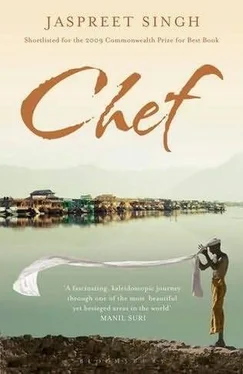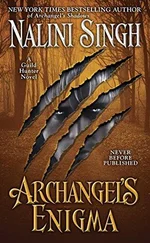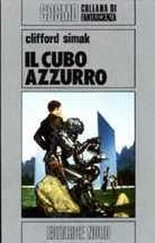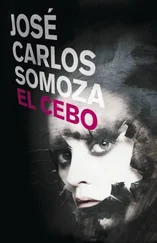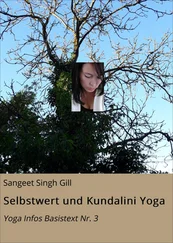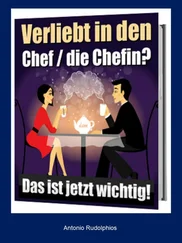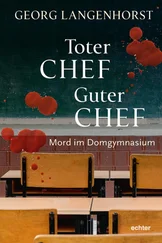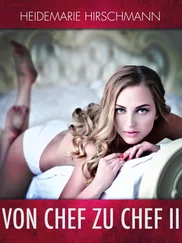Only one person.
Irem.
From the tourist department I got a list of all the hotels in the valley, and finally I visited every single one, but I failed to find her.
Then something else happened. Sahib did not go for his morning walk that day because of light rain. When the rain stopped Sahib stepped out and sat on the bench in the garden. He ordered tea. Through the open kitchen window I observed everything.
The ayah took the tea tray and the daily paper to the garden. I had added ginger in the tea. Normally I would add a clove and crushed cardamom, but that morning I added ginger as well.
Sahib motioned with his hand, as if to say, leave the tray on the bench.
She planted the tray and placed a roll of paper between the tray and Sahib’s crossed legs. He unfolded the Times.
‘Please ask Agha to see me.’
She walked to the edge and beckoned the man raking the leaves in the garden. Not far from the yellow pile his transistor radio was playing rag malar. He stopped and literally ran to the bench.
‘Salaam, Sahib.’
‘Agha, how is the garden?’
‘The begonias have bloomed, Sahib, and the faulty fountain nozzle has been repaired, but it is no longer like the old one.’
‘Something more important?’
The gardener’s canvas shoes dropped a cake of mud as he shifted on green, neatly trimmed grass. He kept his eyes downcast.
‘Your son is dead, Agha,’ General Sahib raised his voice. Sahib rarely raised his voice.
The gardener remained still.
‘Do you hear me?’
The gardener still didn’t move.
‘You didn’t even tell?’
Agha held his face between his hands.
‘Show him the paper.’ Sahib turned to the ayah. ‘He can’t read, but he knows the photo.’
Agha studied the front page.
‘Look at your son. Is he in heaven now? Overnight he made you the father of a martyr. Thirty-seven people inside the bus terminal, Agha – all Kashmiris.’
‘My son DEAD, Sahib.’
‘The bus was to leave for Pakistani Kashmir. Fifty-six miles after fifty-six years. Fifty-six wasted years, Agha. And your son plants a bomb. Shabash.’
‘Passenger not hurt, Sahib.’
‘Passenger not hurt, Sahib,’ he mimicked. ‘Two majors, just out of the academy, killed. Finish. Khatam.’
‘Sahib -’
‘From this bench I used to watch your son. Only a few months ago he watered the trees in this garden. But one thing I will not say, I will not say he was misguided. He well knew the consequences.’
The gate opened. The guard posted outside the Raj Bhavan opened it. The nurse from the army hospital entered, and propped her bicycle by the fence. By the time General Sahib looked over his shoulder she had disappeared into the house.
‘You were going to lose your pension as well, Agha. But I have urged the colonel to reconsider.’
‘No, Sahib?’ He stood up.
‘Agha, the army fears for my life. We must let you go.’
‘But, Sahib, I am not my son.’
The General stood up. He turned and started beckoning the uniforms. The ADC rushed to the bench.
‘Talk to Agha.’
Agha would not leave. Two of the guards forced him to pack his things and threw him out. His feet crushed red and yellow leaves on the narrow path he followed.
The General walked to the gate and looked at the bend in the road for a long time until Agha disappeared.
Later he entered the mansion and climbed the stairs over the kitchen and walked slowly through the dimly lit corridor. In the bedroom he sat in a chair not far from the huge painting on the wall. The dead woman looked down at him from the painting.
I served breakfast in the bedroom.
Porridge. Upma. Papaya.
Orange-pomegranate juice.
Toast with unsalted cheese.
His daughter was lying on the bed. Rubiya was on a special diet. The kitchen had to prepare two separate dishes. One for sir and one for the girl. The nurse examined the girl. Sir moved his chair close to Rubiya and checked her pulse.
‘What is my daughter’s wish?’ he asked.
‘Papa,’ she said. ‘I want to grow up fast.’
‘And,’ he asked, ‘what will she become as a grown-up?’
‘Emperor,’ she said.
‘Emperor or Empress?’
‘Emperor,’ she said.
‘His Highness!’ He saluted her.
‘Papa, I will kidnap people!’
‘Who will His Highness kidnap?’
‘You,’ she said.
Sahib fell silent for a moment. Then he laughed. Being the Governor was a busy job filled with travel, and certainly the girl felt deprived of his presence. Rubiya was such a lonely child – she used to eat porridge and curds and khitchri, and now she is getting married. I am happy for her.
I am on the train because I am happy for Rubiya.
Civ-i-ans. Whatistheword? I am
sur-rounded by civilians in this compartment. What presighly is wrong with me? P-r-e-c-i-s-e-l-y? The tumor is in the speech area of your brain, Kip, the doctor explained. Sala asshole.
I can no longer pronounce certain words correctly. But, I can spell them:
R-a-d-i-o.
Yes.
Transformer?
No.
Tranjister?
No.
Spell it.
T-r-a-n-s-i-s-t-e-r.
Days later I found Agha had forgotten his transistor radio in the Raj Bhavan. He had packed his things hurriedly the day he was fired. I found the radio on in the scullery room. Agha was the only Kashmiri on the staff, and no one knew where he lived.
There were food stains on the silver skin of his Philips radio. Agha, you clown, I said, changing the batteries. The new batteries didn’t improve the reception. But, in the slot at the bottom I found a little note scribbled in Kashmiri. Agha could not read and write. So he must have dictated the lines.
His note led me to the Guest House at the tail end of the Raj Bhavan complex. It used to be the British Resident’s summer house, but now served as a lodge for high-ranking guests. The building faced the lake, and it had a proper roof terrace. Agha’s note said that the reception will improve on the roof, but it will get better downstairs. Unable to follow the logic, I started climbing down. The reception, as I had expected, became worse and worse. Begum Akhtar was singing ghazals. On the radio her voice sounded like a rejected Indian Idol.
Downstairs was clean. Not a particle of dust. Big portraits of six or seven old Governors looked down from walls as white as snow. I turned off the crackling radio and entered the first room. It was called the Husain Room. The room was devoted entirely to M. F. Husain’s paintings of horses. The canvases were huge, twelve feet by eight feet. One almost touched the naked bulb on the wall. I felt dwarfed by the navy-blue and apple-red horses. Reared up on hind legs they looked absolutely alive and stunning. In college the teacher had told us that Husain was the best modern painter in our country, his work was also on display in the National Gallery. No one knows why he is possessed by horses… He is completely self-taught and his personal life is as eccentric as his art. Husain always walks barefoot, she told us. Did you know? Not only inside the house, but also outside. Even in the hot and bustling streets of Bombay he walks barefoot, and that is exactly how he arrives at the lobbies of five-star hotels and foreign embassies and airports and even English-style clubs. He has all the money in the world to buy hundreds of shoe factories, but he shuns shoes as if foreign objects. Why are you like this? a journalist asked once. When I wear shoes I feel I am eating supper with wrong people, answered the painter.
Standing in front of the horses I removed my shoes and socks. My feet were able to breathe again. I felt connected not only to the painting, but also to the painter. When does a painter know that the painting of a horse is done? I asked myself. In kitchen we are able to tell precisely when a dish is done, but when is the horse done? There was something incomplete about the horses on the canvas, but it seemed to me that the fragments were completing themselves in my head. Cooking is different from painting, I thought. The key ingredients are never absent. Father knew horses… when I turned eight he made me feed a horse in the barracks… the animal’s lips had grabbed the apple swiftly from my hand.
Читать дальше
Конец ознакомительного отрывка
Купить книгу
